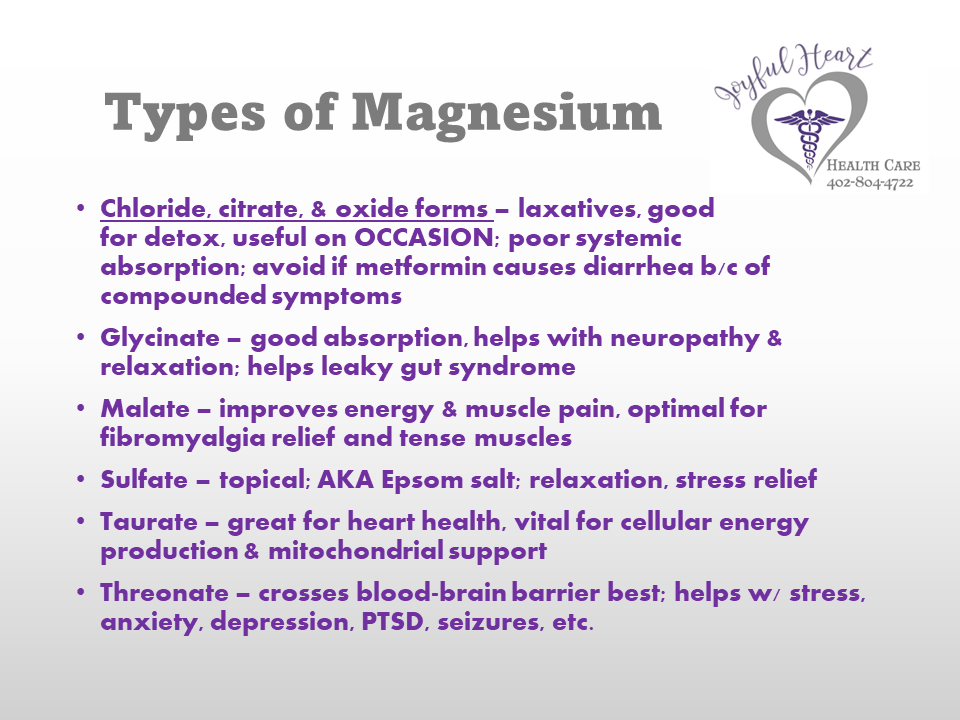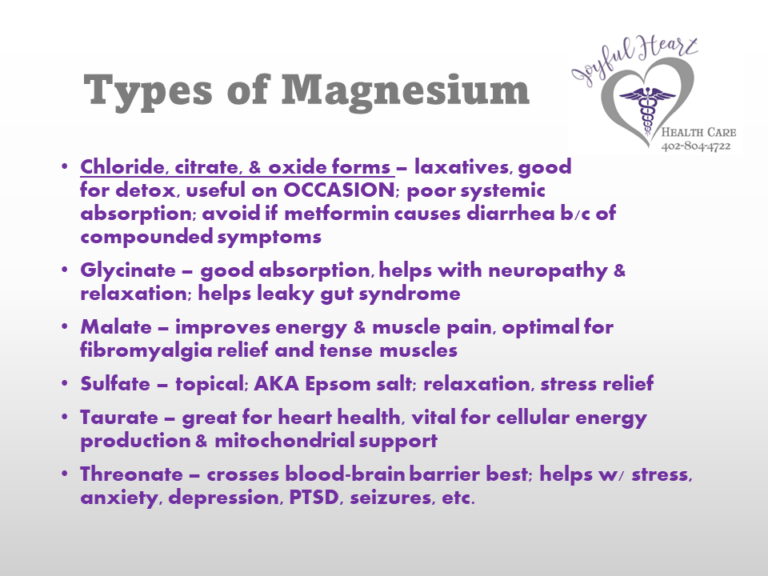Magnesium is a great supplement many of us recommend, but the majority of the mag supplements available in most grocery stores and pharmacies, are laxative forms. Laxative forms of magnesium are not ideal and really should not be taken daily. They are great for laxative purposes, but we don’t really want to relax the intestines long term.
Citrate, oxide, and chloride forms are laxative forms of magnesium and generally have poor absorption profiles, systemically. We’re all familiar with Magnesium Citrate as colonoscopy prep, Magnesium Oxide and Phillips Milk of Magnesia, which is mag hydroxide; we may be less familiar with Uro-Mag, aka Magnesium Chloride. As occasional use supplements, these forms of magnesium can provide great relief for slow gut motility and constipation.
However, for patients looking for muscle relaxing properties or calming effects for stress or anxiety, the laxative forms are less effective than other forms of mag.
The glycinate form of magnesium is great for neuropathy, general muscle relaxation, and may be beneficial for those with leaky gut syndrome.
Magnesium malate is one form that is quite helpful with muscle cramps, fibromyalgia pain, and is also good mitochondrial support, which can improve energy production.

Epsom salt is magnesium sulfate is best absorbed through the skin and offers great relaxation benefits during soaking in a warm tub. Mag sulfate is ideal for tired, achy muscles, chronic low back pain, recovering from strenuous workouts, or just an evening of quiet calming rest in the tub to de-stress. Mag sulfate also comes in sprays, creams, and various topical products as well.
Magnesium taurate is extremely beneficial for people with hypertension, heart failure, or other cardiac conditions for two reasons. Mag taurate breaks down into magnesium and taurine, which are BOTH used – the magnesium helps relax heart muscle and the taurine enters the mitochondria of the cell, to aid in energy production. Both of these effects reduce the workload of the cardiac muscle.
The other commonly used form of Magnesium is L-threonate, which impressively reduces stress, improves anxiety, and has even been shown to impact PTSD and seizures. Mag L-threonate crosses the blood-brain barrier much more effectively and easily than most other forms of magnesium, resulting in the mental health symptom improvements.
Understanding the various types of magnesium that are available can help you choose the most effective form for your specific symptoms. As always, check with your prescriber about the type most suited for your needs.



